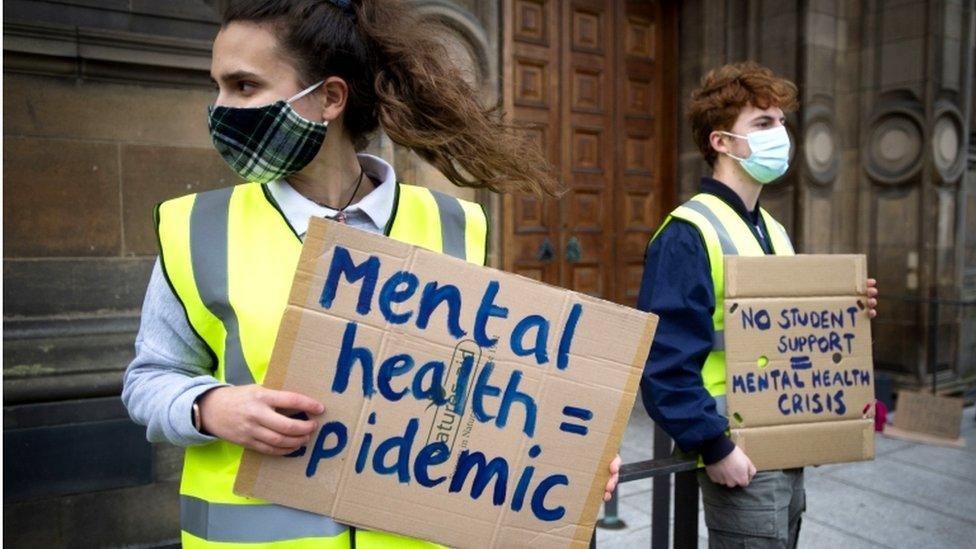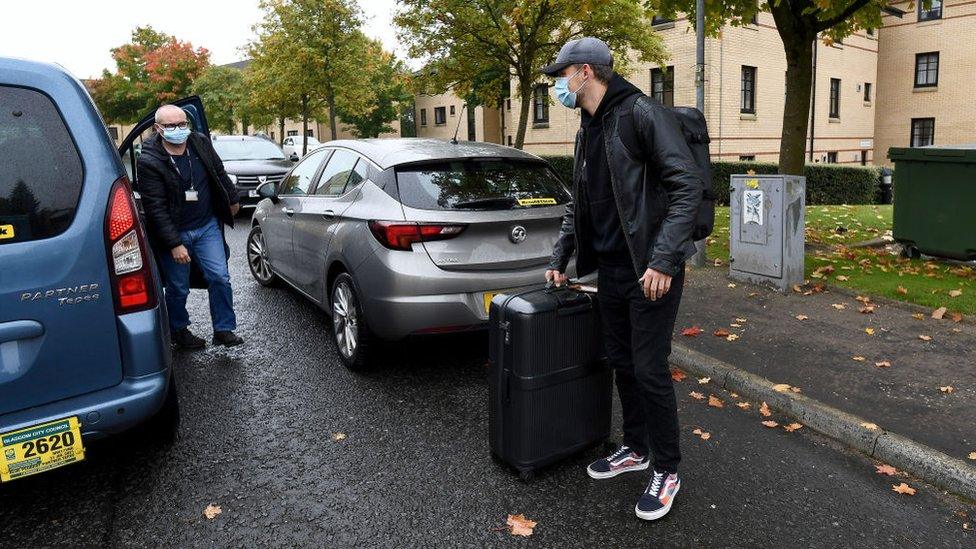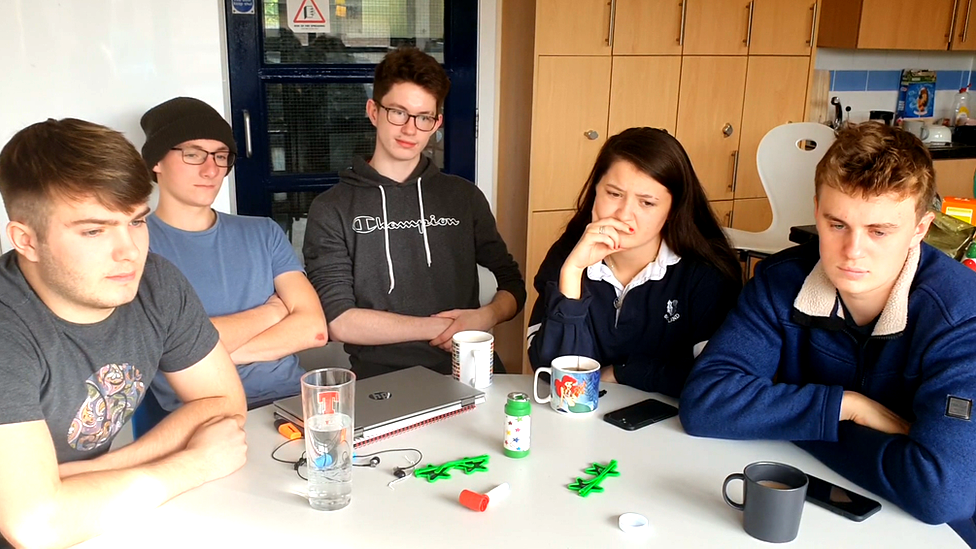National Union of Students issue Covid mental health warning
- Published

Students at Edinburgh University recently staged a protest at what they saw as a lack of support when cases soared at halls of residence
Half of students in Scotland said money worries or financial pressures had affected their mental health - before the Covid pandemic struck.
Research by the National Union of Students also found 72% of undergraduates said they had most concerns in their first year.
The union argues the effects of the pandemic on the sector make these issues more important than ever.
Universities Scotland said the mental health of students was "paramount."
The NUS research, which was carried out in January and February, involved 3,097 college and university students.
It found almost half of students claimed coping with course workload had a negative impact on their mental health.
And about four times as many higher education than further education students were aware of mental health and wellbeing support available to them.
Since the survey was carried out, there has been a spike in Covid-19 infections among students in Scotland, with more than 1,000 having to self-isolate in their halls of residence.
They also face being told not to return home for Christmas if the spread of the virus has not been controlled, following a warning by the deputy first minister earlier this week.
It has raised further concerns about the effect of the pandemic and lockdown measures on their mental health.
NUS Scotland president Matt Crilly called for a greater focus on mental health and more resources in the wake of the outbreak - and more clarity from the Scottish government.
"We remain very concerned about the impact of Covid-19 on students - given the opportunities to socialise with friends and family have been drastically reduced," he said.
"Institutions and accommodation providers alike have a duty of care to ensure that their mental health and wellbeing is supported at this time.
"It's crucial that the Scottish government provides clarity on students' ability to return home safely for the winter break in a way that doesn't negatively impact on their mental health."
The Scottish government has invested in 80 additional counsellors for the sector but the NUS said there needs to be "equity of access".


College and university can be difficult or stressful experiences for many reasons.
A new student may be living away from home for the first time. They may be missing their friends and family badly - in other words their support network.
At the same time they may be facing challenges they have never faced before from the mundane to the very serious, such as budgeting.
Many students may take time to get used to the demands of university education. Others may think they are doing the wrong course.
There are also occasions when students face other difficulties which can also affect their mental health. For instance, they may have been the victims of violence.
These difficulties can all add up. Occasionally the consequences are tragic but this is just the tip of an iceberg.
Universities and colleges would argue they take the welfare of their students very seriously. They may be able to offer direct help or put students in touch with those who can.
This year, it's inevitable the challenges have been intensified by the pandemic. Students do not have the same opportunities to socialise, make new friends and find part time jobs. Some have had to self-isolate.

Fiona Drouet's daughter Emily, 18, took her own life in in March 2016 following an abusive relationship.
The Aberdeen University student's mother, Fiona, is a now a member of the National Suicide Prevention Leadership Group and campaigns for students to have better access to support for psychological, sexual and physical abuse.
Ms Drouet said: "When people are thinking of young people and they're maybe making comments about how they've got to 'toughen up' and things I think they've also got to really consider how challenging this is. It's a whole new chapter in their life.
"We need to make it clear early on in student's lives, not just wait until crisis hits, make sure from the start they know how to access support."
Support 'inconsistent'
Alastair Sim, director of Universities Scotland, said its decisions have been guided by students since the start of the pandemic.
He added: "Mental health is just as important as physical health and our members have ensured that support is available on and offline this academic year and we have promoted these services widely to students too.
"Our own mental health research project will help our members provide the most appropriate support to students."
Jo Anderson, director of external affairs at the mental health charity SAMH, external, said: "We know that even before the pandemic, support for student mental health was inconsistent across Scotland, with demand often outstripping availability.
"Students are known to face a number of factors which can affect their mental health, including a higher risk of loneliness, which will only be exacerbated by the pressures we are all facing in these difficult times.
"In the coming months, we want any pandemic restrictions to be flexible and carefully considered to allow students who experience serious deterioration of their mental health to return home, where they can receive the support they need."


- Published26 October 2020

- Published19 October 2020
